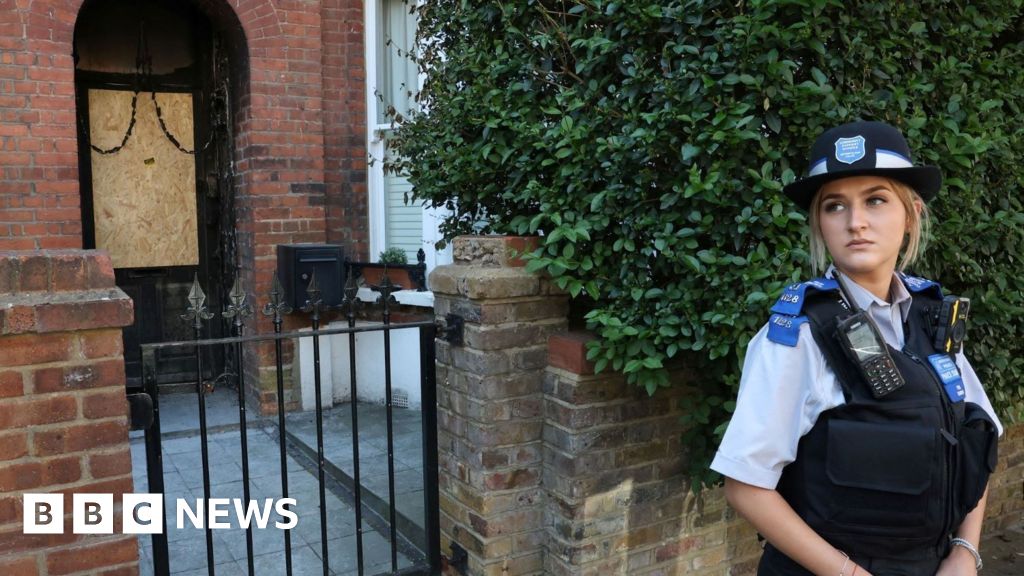The ban on the sale of single-use disposable vapes will come into force on Sunday across the UK, aimed at protecting children's health and the environment.
It means shops and supermarkets will no longer be able to stock them - but they can still sell rechargeable or refillable devices.
Disposable vapes have been cited as a key driver in the rise in youth vaping, while every year five million vapes are thrown away.
Ministers predict it will have a significant impact but health experts say further regulation is needed to tackle youth vaping.
Retailers in England and Wales breaching the ban face a £200 fine for the first offence with potentially unlimited fines or jail for those who repeatedly re-offend.
The ban was first announced for England and Wales by the previous Conservative government but the law was not enacted before last summer's general election.
Labour then pushed ahead with it.
Scotland and Northern Ireland have introduced their own bans, timed to coincide with the one in England and Wales.
Vape use has risen rapidly over the last decade with 9% of the British public now buying and using e-cigarettes.
Latest figures suggest about one in four vapers use the disposable versions, although that proportion has fallen since the ban was announced.
And while it is illegal to sell vapes to anyone under 18, disposable vapes, often sold in smaller, more colourful packaging than refillable ones, have been cited as an important factor in the rise of youth vaping.
Currently one in seven 18 to 24-year-olds vape but have never smoked.
Vaping is substantially less harmful than smoking but it has not been around for long enough for its long-term risks to be known, according to the NHS.
The environmental impact is considerable. Single-use vapes are difficult to recycle and typically end up in landfill where their batteries can leak harmful chemicals like battery acid, lithium, and mercury into the environment, the government said.
Batteries thrown into household waste also cause hundreds of fires in bin lorries and waste-processing centres every year.
The Department for Environment, Food and Rural Affairs estimates almost five million single-use vapes were either littered or thrown into general waste each week last year.
Environment minister Mary Creagh said: "For too long, single-use vapes have blighted our streets as litter and hooked our children on nicotine. That ends today.
"The government calls time on these nasty devices."
But Action on Smoking and Health chief executive Hazel Cheeseman questioned what impact the ban would have, pointing out new refillable vape kits were coming on to the market that look and cost similar to the single-use ones.
She said it would not be until the Tobacco and Vapes Bill, which includes powers to regulate marketing, branding and advertising, came into power that the issue of youth vaping could be truly tackled.
"Their appeal is driven by bright colours, wide availability and cheap prices," she said.
"The new regulations will hopefully help to address the environmental impact, but government will need further regulations to address the appeal of products to teenagers."
She said this was very much a balancing act as vapes were an important tool to help people quit.
"Vaping is very much less harmful than smoking and is the most popular aid to quitting in the UK," she added.
John Dunne, of the UK Vaping Industry Association, said bans were "not the answer".
He said he was concerned that a black market in single-use vapes could develop and some people may be tempted to return to smoking cigarettes.
"Disposables have played a huge role in reducing smoking levels amongst adults to record low levels. It's why we are seeing stockpiling in the lead up to the ban," he added.
Scott Butler, executive director of Material Focus, an independent not-for-profit organisation, said that he was still concerned that vapes are still difficult to recycle and reuse.
He said customers and businesses should demand sustainable options.
"Given the rampant binning and littering that we already see, will we see any behaviour change? Only if producers, importers and retailers step up and meet their long existing legal obligations to provide and pay for takeback and recycling," he said.

 1 day ago
12
1 day ago
12

















































